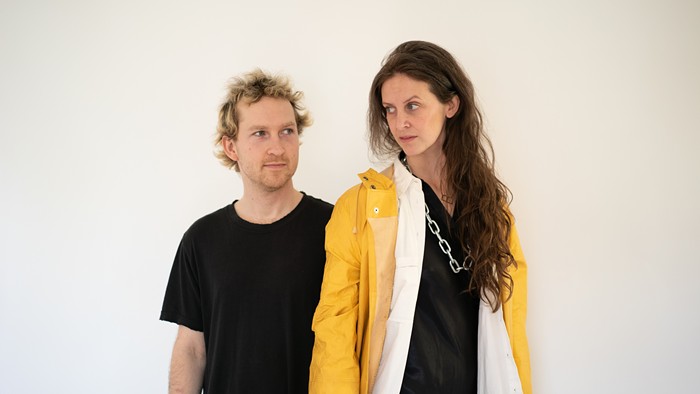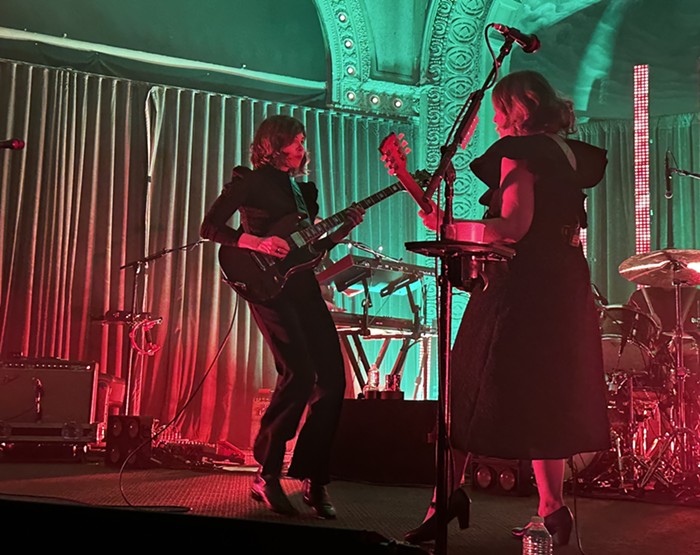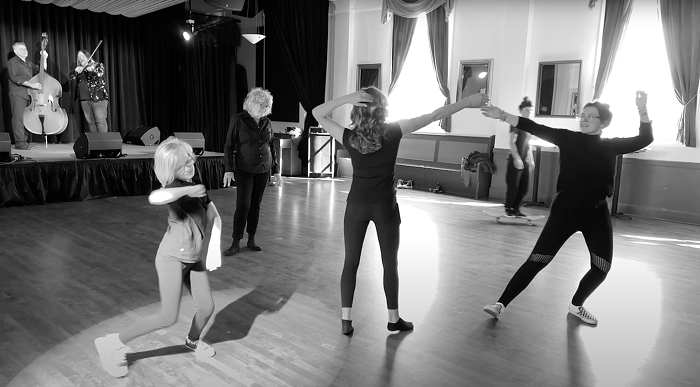Sat April 6
B Complex
In the underground California hiphop scene, new crews sprout up every day, give themselves names, and say they have a definite number of members. This is all clearly an illusion, as every artist has basically worked with/recorded with/played with every other artist. Take the tangled web of people affiliated with Lootpack, for instance: After originally starting out as Funk Farm in the early '90s in Oxnard, California, this dude Madlib (one of the current three members) teamed up with Tash, a member of the LikWit crew (and the former Alkaholiks). Some members of the current Lootpack did some work on the first Alkaholiks album, out of Los Angeles. Lootpack has also performed with (among others) Common, Jurassic 5, Dilated Peoples, Black Eyed Peas, and Cypress Hill. Another emcee in the group, Wildchild, is currently releasing his solo album, and Lootpack proper is also releasing their second full-length album on Stones Throw. If you put "Lootpack" into Google, you'll somehow be led to a page which profiles the Alkaholiks, then to another page that profiles MC Defari, which leads you to a profile of Xzibit.
Of course, all musicians in a given genre influence each other, but as Wildchild explains, Lootpack and the other underground Californian artists are in a position to "influence the people that have influenced us." No one is ahead of the game or making music that's totally isolated. Everyone's just on the same team.
Some people have argued that this quality, plus the fact that hiphop is such a (relatively) young form of music, gives hiphop a more uniform sound. But I think the awareness makes individual crews more unique. "The Lootpack is a sound like no one else's," says Wildchild. It's "that rawness in both the lyrics and beats. We want to create our own sound, our own way of music. You know, give them that unexpected shit." For Lootpack, that unexpected shit is dense, layered music, one that sounds like there are about 10 people in the crew, rather than three. Though the beats layed down by DJ Romes are clearly the glue of the music, the Madlib and Wildchild add equally intense, clear vocals, which are remarkably articulate considering how alternately fast and mellow they can be. There are a lot of instruments and weird noises referenced in their music, including trumpets, police sirens, video games, chimes, and lots of other horn-like sounds. It's great music because it has so much integrity, rather than being off the charts progressive or new.
With so much commercial hiphop exploding right now, Lootpack says they have more to define themselves against--which makes the underground movement all the more interesting. "I definitely respect them [artists like Jay-Z and Shaggy] for what they have achieved," says Wildchild. "And it just pushes us much harder to achieve that, but by doing it our own way." By achieving that, says Wildchild, he definitely doesn't mean to say that Lootpack hopes to sound like Jay-Z, but rather, they wish to similarly capitalize on the world's readiness to hear hiphop. "Staying underground has definitely been an artistic decision," he explains. By watching hiphop blow up, Lootpack hopes to someday show the world what else hiphop can be. "I mean, our music is for the 'underground,' but we definitely would love to watch it reach out to the mainstream masses," concludes Wildchild.
As part of this mission, Lootpack has traveled as far as Austria, Germany, England, the Netherlands, Sweden, Norway, and Belgium. "The love we get out of these countries is dope. I mean, its a great feeling to reach these less available audiences, to let them experience something that the U.S. audiences have gotten more accustomed to," says Wildchild. Still, the Lootpack sound is undeniably a product of America. "Having a loyal following back home is good," says Wildchild. "It keeps us grounded."


















